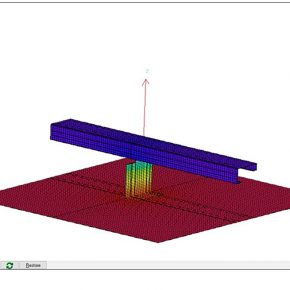
Mortgage approvals reach 13-year high
Mortgage approvals in the month of August have reached the highest on record since October 2007, shortly before the financial crash.
With 84,700 mortgages approved in August this year, a record number of homeowners, both new and existing, have been looking to move home, which has been fuelled dramatically by the economic and lifestyle changes surrounding coronavirus.
Whilst August is often considered a sleepy month for the mortgage industry, these record levels reflect the changing nature of UK households.
Last month, Rightmove reported a 30 – 40% increase in demand for new home searches, particularly four and five bedrooms outside of London; as people look to have increased space and garden areas for a more comfortable lifestyle at home and the option to work remotely.
Government initiatives to reduce stamp duty under homes priced £500,000 has also helped enormously, particularly for those first time buyers looking to get on the ladder and have a break from over-socialising with Mum and Dad during lockdown.
Despite the rise in mortgage approvals, the number of overall approvals in 2020 is still lower than 2019, referring to the very limited borrowing that took place during the lockdown months of March to June.
So far this year a total of 418,000 mortgages have been approved, below the 524,000 approved in the same period in 2019.
Bloomberg had predicted that 71,300 mortgages would be approved during August, whilst Reuters had estimated 71,000 approvals.
Howard Archer, chief economic advisor to the EY ITEM Club, commented: “August’s further rise in mortgage approvals provides ongoing hard evidence of the marked short-term pick-up in housing market activity since the easing of restrictions that started in mid-May, which released pent-up demand
“This buoyancy has been reinforced by the Chancellor raising the Stamp Duty threshold to £500,000 from mid-July through to 31 March 2021.”
There has also been strong demand for non-banking finance, such as bridging loans and development finance. This is often used as an alternative to traditional mortgages or completing on property deals within a tight deadline.
The growth in non banking finance, otherwise known as ‘specialist finance’ is a reflection on the demand for property investors and developers to build, create and renovate properties. Many developers and lenders have reported a surge in new business during the last few months
This may be an opportunity to ‘make hay whilst the sun shines’ and get deals over before another lockdown occurs, worse case scenario.
Equally, it highlights the optimism and desire of fund managers to get Britain going again and generate business for their clients and employees, during a tough economic period.
Latest news

26th July 2024
Enfield Speciality Doors completes world-class project for Atlas Copco HQ
A rundown office and warehouse building completely transformed into a modern headquarters for Atlas Copco has been fitted with more than 120 internal fire doors from Enfield Speciality Doors.
Posted in Access Control & Door Entry Systems, Articles, Building Industry News, Building Products & Structures, Building Systems, Case Studies, Doors, Interior Design & Construction, Interiors, Posts, Restoration & Refurbishment, Retrofit & Renovation, Security and Fire Protection, Sustainability & Energy Efficiency, Timber Buildings and Timber Products, Wooden products
26th July 2024
Abloy UK launches new white paper
Abloy UK, a leading provider of security and access control solutions, has launched a new white paper.
Posted in Access Control & Door Entry Systems, Architectural Ironmongery, Articles, Building Industry News, Building Products & Structures, Building Services, Doors, Facility Management & Building Services, Health & Safety, Information Technology, Innovations & New Products, Publications, Research & Materials Testing, Security and Fire Protection
26th July 2024
MCRMA Member Profile: David Roy, Director of Roofconsult
David Roy of MCRMA member company Roofconsult has more than 50 years’ experience to draw upon working in the building envelope sector and a unique perspective on how it has changed in that time.
Posted in Articles, BIM, Infrastructure & CAD Software, Building Associations & Institutes, Building Industry News, Building Products & Structures, Building Services, Building Systems, Cladding, Information Technology, Restoration & Refurbishment, Retrofit & Renovation, Roofs, Walls
26th July 2024
Strand: Enhancing Door Functionality and Safety
Craig Fox, Sales Director for Strand Hardware, outlines how door industry professionals might apply door limiting stays…
Posted in Architectural Ironmongery, Articles, Building Industry News, Building Products & Structures, Building Services, Doors, Facility Management & Building Services, Health & Safety, Restoration & Refurbishment, Retrofit & Renovation
 Sign up:
Sign up: